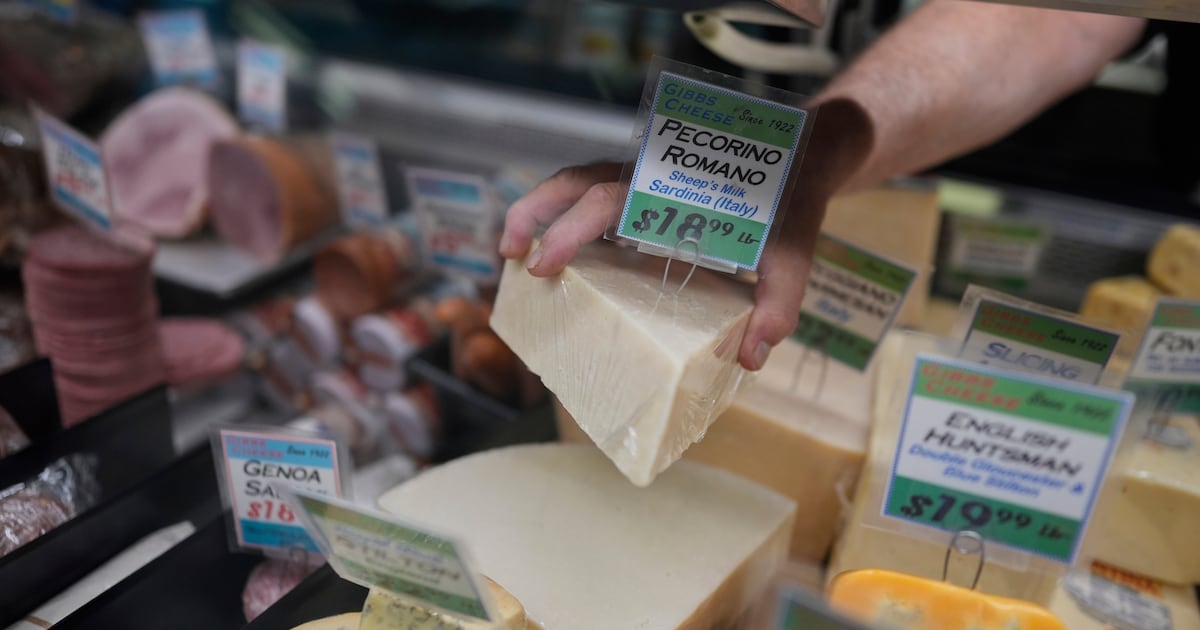Jeff Gibbs, the proprietor of Gibbs Cheese, examined Pecorino Romano cheese brought in from Sardinia, Italy, at his store in Findlay Market on Thursday, April 3, 2025, in Cincinnati.
For a long time, dairy products, particularly cheese, have been scrutinized for their potential to induce nightmares. This notion has been popularized by cultural references, such as Ebenezer Scrooge attributing his ghostly visits in “A Christmas Carol” to ‘a crumb of cheese,’ and a comic strip from the 20th century that connected unsettling dreams with indulging in Welsh rarebit, a cheese on toast dish.
Recently, a study published in the journal *Frontiers in Psychology* examined these longstanding beliefs regarding dairy and sleep disturbances.
Researchers from MacEwan University conducted a survey involving 1,082 students, aiming to understand perceptions of how food affects dreaming. The students were asked about their general eating habits, late-night snack choices, food sensitivities, and their sleep experiences, including the occurrence of dreams and nightmares.
The results revealed that nearly half of the respondents felt certain foods either hindered or enhanced their sleep quality. While 20% reported that food helped them sleep better, nearly 25% believed their sleep was negatively impacted, with 5% claiming it affected their dreams specifically.
Researchers noted that individuals who associated their dreams with specific foods often experienced more frequent and disturbing dreams, frequently overlooking their hunger signals. A significant portion of these participants blamed sweets—31%—for poor sleep, while 22% pointed a finger at dairy products.
Image: Snickers bars from Brazil displayed at Economy Candy in New York’s Lower East Side on Friday, April 4, 2025. | Richard Drew, Associated Press
However, perceptions of worse sleep were closely linked to lactose intolerance and gastrointestinal issues, alongside late-night snacking; about 30% of those who thought their diet negatively affected their sleep were lactose intolerant. Dr. Tore Nielsen, lead author from Université de Montréal, stated, “These new findings imply that changing eating habits for people with some food sensitivities could alleviate nightmares. They could also explain why people so often blame dairy for bad dreams!”
The discomfort from dairy consumption could lead to gastrointestinal disturbances that might disrupt sleep and dreams.
Conversely, the study identified foods that may promote better sleep. Approximately 18% of respondents who regularly consumed fruits reported improved sleep, along with 12% who ate more vegetables and 13% who drank herbal tea.
Image: Fresh vegetables for sale at a grocery store in River Ridge, La., on Wednesday, July 11, 2018. | Gerald Herbert, Associated Press
The research solidified the connection between diet and sleep while highlighting food sensitivities, such as lactose intolerance, as factors in the prevalence of nightmares. However, the specific dynamics underlying the relationship between diet and sleep remain unclear; it is possible that poor eating habits lead to disrupted sleep, or that a separate factor influences both.
These findings suggest that discomfort from dairy might contribute to strange or unsettling dreams, paving the way for further exploration into the impact of diet on dreaming. Meanwhile, the implications could encourage individuals to modify their diets for potential improvements in sleep quality without needing professional guidance.










